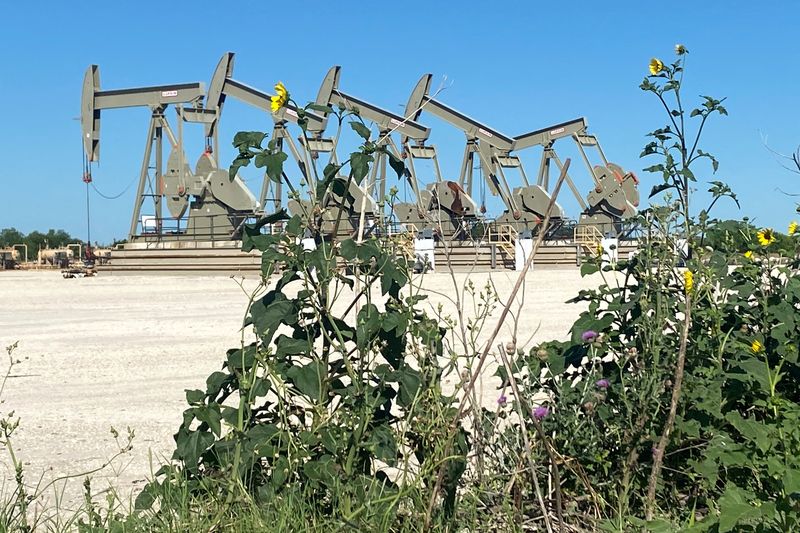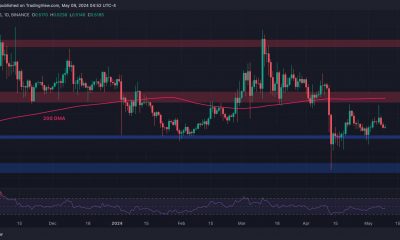Commodities
BARILLA, MORE SUSTAINABLE SUPPLY CHAINS TOGETHER WITH 9,000 FARMS THE COMMITMENT TO RENEWABLE ENERGY AND 100% RECYCLABLE PACKAGING AND THE SUPPORT FOR LOCAL COMMUNITIES
PARMA, Italy, June 26, 2023 /PRNewswire/ — The Barilla Group Sustainability Report highlights the results achieved from the Parma-based Group for the well-being of people, for the environment and for the communities. According to its purpose “The joy of food for a better life”, Barilla continued to invest in improving its pasta, sauces and bakery products (almost 500 products reformulated and improved since 2010, 40 launched in 2022). The aim is to innovate and reduce the impact of production processes in terms of CO2eq emissions, energy and water consumption, to promote sustainable supply chains and to design packaging to be recyclable.
Since 1877 our work has been fuelled by the desire to surpass ourselves, coming to the present day with the same spirit as the founders. This is the only certainty we have before us: a great deal of passions and still so much work to do”, noted Paolo Barilla, Vice-President of the Barilla Group.”If we wish to give our planet and every one of us a future, we must all play our part. Our company embarked on this journey many years ago, taking small steps that over time have helped us to achieve great results”, stated Gianluca Di Tondo, CEO of the Barilla Group.Durum wheat, common wheat, basil and tomatoes: the Barilla Group’s commitment to sustainable supply chains from farm to fork continues, with 9,000 farms involved in sustainable and regenerative agriculture projects. Furthermore, 100% of Mulino Bianco breads, biscuits and snacks are produced using renewable energy and Barilla’s pasta factories have tri-generation plants. Compared to 2010, greenhouse gas emissions have decreased by 32% and water consumption per tonne of finished product by 24%. In Italy and worldwide, 100% of the Barilla Group’s pasta, sauces, pesto, breads, biscuits and snacks are designed for recycling. In line with decisions made in previous years, Barilla’s new plan provides an investment of €1 billion, half of which in Italy, in support of sustainable business. Sustainability at Barilla is also about paying attention to people and local communities. In one year, €3.2 million and over 3,200 tonnes of products have been donated to support the communities where Barilla operates and to improve access to food. The Barilla Group Sustainability Report is now online on the www.barillagroup.com website.Photo – https://mma.prnewswire.com/media/2140387/The_Barilla_Group.jpg View original content to download multimedia:https://www.prnewswire.com/news-releases/barilla-more-sustainable-supply-chains-together-with-9-000-farms-the-commitment-to-renewable-energy-and-100-recyclable-packaging-and-the-support-for-local-communities-301863038.htmlSOURCE Barilla
Commodities
Russia is shipping oil to North Korea above UN mandated levels – US official

(This May 2 story corrects U.S. official’s quote to say annual cap is 500,000 barrels, not 500, in paragraph 3 and to say Ukraine, not North Korea, in paragraph 8)
By Steve Holland
WASHINGTON (Reuters) – Russia has been quietly shipping refined petroleum to North Korea at levels that appear to violate the mandates of the United Nations Security Council, a U.S. official said on Thursday, adding the U.S. is planning new sanctions in response.
The disclosure came on the first day after a U.N. panel of experts monitoring enforcement of longstanding U.N. sanctions against North Korea for its nuclear weapons and missile programs was disbanded after a Russian veto.
“At the same time that Moscow vetoed the panel’s mandate renewal, Russia has been shipping refined petroleum from Port Vostochny to the DPRK (North Korea). Russian shipments have already pushed DPRK imports above the 500,000-barrel annual cap mandated by the U.N. Security Council,” the U.S. official told Reuters, speaking on condition of anonymity.
The official said that in March alone, Russia shipped more than 165,000 barrels of refined petroleum to North Korea and that given the close proximity of Russian and North Korean commercial ports, Russia could sustain these shipments indefinitely.
Russia blocked the annual renewal of the panel in late March in what the U.S. official described as a calculated move by Moscow to hide its own violations of UN Security Council resolutions.
The official said the United States will continue to impose sanctions “against those working to facilitate arms and refined petroleum transfers between Russia and the DPRK.”
remove ads
.
“We have previously worked to coordinate autonomous sanctions designations with our partners — including Australia, the European Union, Japan, New Zealand, the Republic of Korea, and the United Kingdom — and we will continue to do so,” the official said.
North Korea has been helping Russia in its war against Ukraine by supplying ballistic missiles.
Commodities
Oil settles lower on signs of easing supply tightness

By Shariq Khan
NEW YORK (Reuters) -Oil prices closed slightly lower on Tuesday on signs of easing supply concerns, while market participants shifted their focus to U.S. stockpiles data due later today and Wednesday.
futures settled 17 cents lower at $83.16 a barrel, and U.S. West Texas Intermediate crude futures closed 10 cents lower at $78.38.
Prices fell further in thin post-settlement trading after market sources said that data from the American Petroleum Institute showed a jump in and fuel stocks last week. Rising inventories, typically a sign of weak demand, have defied analysts’ expectations in recent weeks.
Analysts polled by Reuters forecast a decrease in U.S. oil and fuel stockpiles, and official data from the U.S. Energy Information Administration (EIA) is due at 10:30 a.m. ET (1430 GMT) on Wednesday. [API/S] [EIA/S]
Brent crude futures traded at $82.98 a barrel by 4:48 p.m. ET, 35 cents lower than Monday’s closing price, and WTI futures were down 23 cents to $78.26 a barrel. U.S. gasoline futures and ultra-low sulfur diesel futures also fell in extended trading.
“If EIA shows less barrels are going into the refineries, then that is a problem for crude oil here,” Mizuho analyst Robert Yawger said. “Heading into peak summer driving season we should be drawing, not building,” he added.
Current global inventory data shows crude oil and petroleum supplies are running 1.1 million barrel per day above forecasts in developed economies, according to an analysis by energy brokerage StoneX.
“Global inventories remain in a building phase and has accelerated recently,” StoneX analyst Alex Hodes wrote to clients on Tuesday.
remove ads
.
The EIA on Tuesday raised its forecasts for this year’s world oil and liquid fuels output and lowered its demand expectations, pointing to a well-supplied market as opposed to prior forecasts that showed under-supply.
The premium of the first-month Brent contract to the six-month contract slipped to $2.90 a barrel on Tuesday, the lowest since mid-February, another sign of market participants betting on easing supply tightness.
Last week, Brent and WTI had their steepest weekly losses in three months as weak U.S. jobs data fueled hopes for interest rate cuts.
Oil prices found some support in Tuesday’s session from a U.S. government solicitation to buy more than 3 million barrels of oil for the Strategic Petroleum Reserve (SPR).
Oil traders largely looked past escalating tensions in the Middle East, where the Israeli military seized control of the Rafah border crossing between the Gaza Strip and Egypt and its tanks pushed into the southern Gazan town of Rafah, as mediators struggled to secure a ceasefire agreement.
“Instead, their focus appears directed towards the uncertainties surrounding global economic growth prospects and the anticipated impact of sluggish growth on oil demand,” said Ricardo Evangelista, senior analyst at financial brokerage ActivTrades.
Commodities
Oil prices fall as US stockpiles increase; OPEC+ output levels eyed

Investing.co — Oil prices fell Wednesday as industry data pointed to a sustained increase in U.S. inventories, implying demand from the world’s largest consumer is coming under pressure.
At 08:35 ET (12:35 GMT), fell 1.2% to $82.12 a barrel, while fell 1.3% to $77.37 a barrel.
US oil inventories clock unexpected build – API
Data from the showed that U.S. oil inventories grew 0.5 million barrels in the week to May 3, confounding expectations for a draw of 1.4 million barrels.
“API numbers released overnight were moderately bearish due to stock builds in both crude and products,” analysts at ING said, in a note.
“While US crude oil inventories are estimated to have increased by only 500k barrels over the week, gasoline and distillate stocks increased by 1.5m barrels and 1.7m barrels respectively. In addition, stocks at the WTI delivery hub, Cushing, grew by 1.3m barrels over the week.”
The data comes after U.S. inventories saw an unexpected, outsized build in the prior week, which spurred speculation that global oil markets were not as tight as initially expected.
The API data usually heralds a similar reading from , which is due later on Wednesday.
Strong U.S. supplies have undermined expectations of tighter global oil markets, especially as recent data also showed U.S. oil production raced back to record highs in February.
OPEC+ to roll over supply output cuts?
Cautious expectations on supply cuts from the Organization of the Petroleum Exporting Countries and its allies ahead of a June 1 policy meeting also weighed on markets.
remove ads
.
Russian Deputy Prime Minister Alexander Novak said on Tuesday that there had been no discussions about an oil output increase by OPEC+, a day after he was reported saying the group had the option of increasing production.
“Our oil balance suggests that there is no need for a full rollover of the 2.2m b/d of cuts. Instead, a partial rollover should be enough to keep the market balanced for the remainder of the year,” ING added. “However, recent price action increases the risk that full cuts are rolled over, which in turn increases the risk of OPEC+ overtightening the oil market later in the year.”
Middle East tensions persist, Israel-Hamas ceasefire uncertain
Israel kept up its offensive against Rafah on Tuesday, while also seizing a key main border crossing in the city.
The move came even as Hamas officials reportedly accepted a new ceasefire proposal for Gaza – one that Israel rejected. Hamas also expressed ire over Israel’s attacks on Rafah, and that the strikes largely undermined any progress towards a truce.
Still, U.S. officials said a ceasefire could still be reached, as delegates from both sides met in Cairo for negotiations.
The prospect of continued geopolitical unrest in the Middle East presented some support to oil prices, amid bets that the unrest will disrupt supplies in the oil-rich region.
(Ambar Warrick contributed to this article.)

 Forex2 years ago
Forex2 years agoForex Today: the dollar is gaining strength amid gloomy sentiment at the start of the Fed’s week

 Forex2 years ago
Forex2 years agoHow is the Australian dollar doing today?

 Forex1 year ago
Forex1 year agoUnbiased review of Pocket Option broker

 Forex2 years ago
Forex2 years agoDollar to pound sterling exchange rate today: Pound plummeted to its lowest since 1985

 Cryptocurrency2 years ago
Cryptocurrency2 years agoWhat happened in the crypto market – current events today

 World2 years ago
World2 years agoWhy are modern video games an art form?

 Stock Markets2 years ago
Stock Markets2 years agoMorgan Stanley: bear market rally to continue

 Economy2 years ago
Economy2 years agoCrude oil tankers double in price due to EU anti-Russian sanctions

































